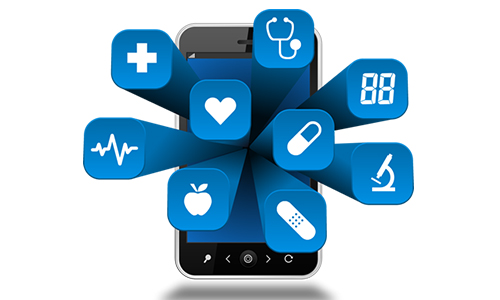mHealth app for clinical decision support improves diagnosis time, test ordering
April 27, 2018
Source: Clinical Innovation
 839
839

Mobile health (mHealth) applications for clinical decision support could improve physicians’ test ordering and diagnosis decisions, according to a study published April 20 in the Journal of Informatics in Health and Biomedicine.
In this study, researchers evaluated the PTT Advisor app developed by the Centers for Disease Control and Prevention (CDC)’s Clinical Laboratory Integration into Healthcare Collaborative (CLIHC). Researchers look at its impact on laboratory test ordering and diagnosis decisions. Physician feedback was also evaluated.
“There are increasingly more physician-focused health apps available, and while physicians are becoming more comfortable using these apps, they don’t necessarily know which ones can help with diagnosis because they haven’t been evaluated,” said lead author Ashley Meyer, assistant professor of medicine at Baylor and researcher in the Houston Veterans Affairs Center for Innovations in Quality, Effectiveness and Safety (IQuESt). “Test ordering and diagnosis for certain hematologic disorders is particularly difficult for physicians. The team at the CDC’s Clinical Laboratory Integration into Healthcare Collaborative developed PTT Advisor to address these issues and approached our research group to conduct an evaluation.”
To test the app, researchers created eight patient vignettes with normal prothrombin times (PT) and abnormal partial thromboplastin times (PTT). Physicians ordered tests and made diagnosis decisions for four of the vignettes using either PTT Advisor or conventional clinical decision support. Physicians were then interviewed on perceptions of the app’s usefulness.
Results from the total 368 vignettes showed that accuracy and testing decisions increased 13 percent compared to cases using traditional decision support. Additionally, using the app helped physicians make diagnosis 51 seconds faster—a 22 percent reduction of diagnosis time.
“Our results underscore several important policy implications to consider as healthcare apps are increasingly adopted,” concluded Meyer and colleagues. “A multitude of mobile applications have been created to support physicians in their diagnostic decision-making, but few have been evaluated in terms of how they improve test ordering and diagnostic decision-making performance. While our methods were able to test clinical decision making and potential impact on patient care, most apps do not undergo similar testing. Physicians thus currently have no way of knowing which apps are useful and which are not trustworthy. All of these factors might limit app usefulness in the real world.”
By DduRead more on
- Things to Know before Buying Newborn Baby Incubators March 31, 2022
- Highly Resistant Food Poisoning Bug Responds to Antibiotics September 6, 2018
- Smartphone Based Diagnosis to Identify Mosquitoes Transmitting Infection September 5, 2018
- 3 Natural Plant Extracts Manufacturers on Drugdu.com September 4, 2018
- Shenzhen Chuanggan – Health Assessment Facility Supplier September 4, 2018
your submission has already been received.
OK
Subscribe
Please enter a valid Email address!
Submit
The most relevant industry news & insight will be sent to you every two weeks.



